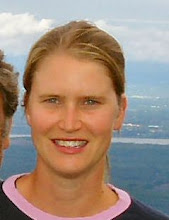I just finished reading “Fidelity, Five Stories” by Wendell Berry. The short stories are about a tightly knit farming community in the hills of rural Kentucky from just after the Civil War to just after World War I. The families in the stories have farmed the same land for generations. Berry tells of us of the families’ great love for their land and how the families survived only because they were a community. It reminded me of the stories my mom and my grandparents used to tell me about their farm in rural Iowa.
I grew up being fascinated by stories of the history of my grandparents’ farm. They lived in small farming community in the flat plains of northwest Iowa. They had a small, diverse farm with a dairy herd, beef cows, pigs, and sheep; a large orchard and garden; and they grew corn, soybeans, and cut hay. My grandfather’s brothers also farmed nearby. They would come together to help harvest and plant – whenever help was needed the other farmers were there. Life in the towns was intimately connected to the life on the farms. If there was a bad year, life in town was tough, too. The townspeople and the farm families were interdependent.
Then, as Michael Pollan writes, we went the wrong direction with agriculture for 70 years. I am not saying I want to return to the lifestyle my grandparents had – I do enjoy the conveniences and technology we have today. But that same sense of being connected to the land and to a community is driving a change for a different kind of agriculture than the industrial model of farming we find today. A newfound desire for local food is bringing people back to the land, either as new farmers or customers supporting a farm. We are creating new communities that are not bound by close geographical or economic confines. Customers in New York City can feel just as connected to a farm as the customers who live in the farming communities. Due to the support of loyal customers there is now a resurgence of small farms in Columbia County who support each other when times are good and when times are hard. As an example, this week I was recovering from a small farm accident and couldn’t be on the farm. Paul Hess and Kelly O’Hearn, who worked on the farm for the 2006 and 2007 seasons, have now started their own farm down the road. Paul gave up an afternoon on their farm to help us out with tractor cultivation. The farm crew put in extra hours and took on new responsibilities to make sure the shares were ready for delivery. Dick Shirey, a longtime Capital District member, came to the farm for two days to help the crew harvest and weed.
We see recently that industrial agriculture is not doing its job to feed the world’s
population. Cheap food is no longer cheap enough. In some nations, the people don’t even want the products our farmers produce; they fear the diseases that could be carried by our beef cows. Each year, more and more acreage is planted in genetically modified crops. It is a daunting task to take on this form of agriculture and its 70-year legacy. We can each make a small step by being aware of where our food comes from and work toward making this choice accessible to everyone.
The communities that support small farms today can bring about great change and provide hope for a different future. The communities purchase farms and protect land for future farmers. They create models that allow farmers to farm in a way that sustains the land and provides for animals to be raised humanely. The communities train and nurture new farmers. They realize that children need to get their hands in the dirt and provide the means to bring children to the farms or bring gardens to the cities. The farmers and the eaters have made the choice to be interdependent once again. ~ Jody
Subscribe to:
Post Comments (Atom)




No comments:
Post a Comment